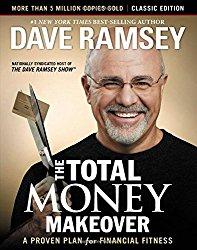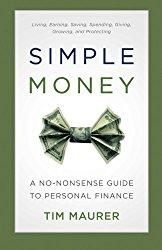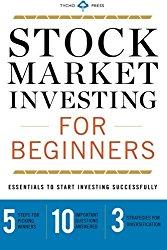As President Trump rolled out his tax plan, one area that corresponds with his campaign promises is a cut in the corporate tax rate. During the campaigns he said he would cut it to 15%, maybe 20%. Now it appears that he is eyeing a cut to 15% from the existing rate of 35%. This has caused some to declare that the rich corporations are getting richer at the expense of the poor. Yet really, since businesses just pass through costs to consumers, and a tax is just a cost, who is really paying the corporate income tax?
The cuts on the individual side in the Trump plan are a bit less exciting. Many rates would stay about the same, except there would be a virtual exemption for the first $24,000 of income. The top rate would only fall from 39.5% down to 35%. Still, we’re hearing the usual calls from progressives of how the rich are getting a big tax break while the poor and middle class get nothing.
Really, though, what is the purpose of taxes?
The purpose of taxes is to raise the money needed for government functions. But oddly, some people seem to feel that taxes are to be a punishment for those who make “too much money.” Originally it was probably just the idea that those who make more would be able to pay a greater portion of costs, kind of like when your parents pay when you go out to eat while you’re in college or just starting a first job. Or maybe it’s more the thought that those who don’t make much won’t be able to pay much if anything in taxes. That idea morphed into the idea that those who had more burdens, like children to raise, health expenses to cover, and a bigger mortgage payment, should be given a break since they have less money available to pay taxes. Somehow along the way it became virtuous to have obligations and make little money and evil to have few obligations and make more money.



Shop Personal Finance and Business Books
1. If you make little money or no money, you should not pay taxes and maybe even get money from the tax system. You should also get a lot of services even though you have paid nothing for them.
2. If you make more money, you should pay more in taxes and pay at a higher rate.
3. If you make a whole lot of money, you should pay really high rates. Maybe above a certain amount you should just have it all confiscated. (After all, who needs that much money?) Not only that, but you should also not get to deduct your obligations, and you should not get to partake in many of the services provided by your tax dollars, at least without paying again.
As an example of denying those who make above a certain amount access to services, both Bernie Sanders and Hillary Clinton favored providing free college, but only to those making less than $125,000 per year. The wealthy would be paying most of the taxes, providing the money to pay for those colleges, yet their children would not even get to go to those colleges without paying again. After all, why should some son of a billionaire get to go to college for “free” just because his parents paid for it?
Get your Java on:

Coffee Variety Sampler Pack for Keurig K-Cup Brewers, 40 Count
San Francisco Bay OneCup, Fog Chaser, 80 Single Serve Coffees
KRUPS F203 Electric Spice and Coffee Grinder with Stainless Steel Blades, 3-Ounce, Black
Note that nowhere in the calculus is the amount of effort an individual puts out included. If someone does nothing all day and therefore makes no money, he is still rewarded. If someone works 100 hour weeks to make $150,000 per year, he is punished.
Effort is punished. Resting is rewarded.
But what do we want people to do in a society if we want a wealthy society with lots of wealth to go around?
We want people to do things.
We want them to grow crops so that there is food to eat. We want them to build houses so that there are places to live. We want jobs, so we want people to start companies and grow them to the point that there are lots of jobs. We want lots of managers and supervisors, since those are higher paying jobs, so we want big companies. In general we want almost everyone working, using their time to make things, so that there are more things to go around.
But think about the tax system described that rewards you for doing little or nothing, but penalizes you for doing a lot. If you lay around on the couch, you get free stuff and money. You pay no taxes. You are considered noble.
If you spend a lot of time working and creating things, you are considered less noble. You are made to pay more. You get less free stuff.
If you start a big company and employ a lot of people, you are evil. You are made to pay a lot as punishment for your sin of making a big company that employs a lot of people. You get no free stuff, even though you are providing the money that is providing that free stuff.
The current system encourages people to do little or nothing.
You would not want to do too much, or you would be punished. You get to keep all of the dollars you make between $0 and $20,000, but only 85 cents on the dollar between $20,000 and maybe $80,000. You also don’t get as much free stuff as you make more money. Over a certain level, you only get to keep 60 cents for each dollar you make. If we go back to where we were in the 1950’s before President Kennedy started reducing the top tax rates, at a certain point you would only get to keep ten cents for every dollar you make. This system does not encourage people to produce and do the things.



Shop the latest clothing and accessories
This system does not encourage people to be productive, which is what you want to have a wealthy society with lots to go around.
So what would a system that encourages people to produce, and make jobs, and build big businesses with lots of high paying jobs look like? Well, it would not penalize people for being productive. You would not get to keep a smaller portion of each dollar you make as you cross certain income thresholds. This sounds like something like the flat tax or the Fair Tax, In fact, maybe there would be an incentive to make at least some minimal amount – to produce at least something – so that everyone would at least spend some of their time working to produce something. Maybe a flat tax where receiving any sort of aid required that you have some minimum income level (based on your physical and mental capability to make an income), or a Fair Tax where you get the prebate if you earn a certain amount of income each year. (Go to Fairtax.org for information on the Fair Tax.
So, while progressives may push back against lowering corporate income taxes and lowering the upper tax rates, realize that doing so brings you closer to a tax system that provides what you want in a society:
- Lots being produced.
- Lots to go around,
- Lots of jobs.
Follow me on Twitter to get news about new articles and find out what I’m investing in. @SmallIvy_SI
Disclaimer: This blog is not meant to give financial planning or tax advice. It gives general information on investment strategy, picking stocks, and generally managing money to build wealth. It is not a solicitation to buy or sell stocks or any security. Financial planning advice should be sought from a certified financial planner, which the author is not. Tax advice should be sought from a CPA. All investments involve risk and the reader as urged to consider risks carefully and seek the advice of experts if needed before investing.

